Directed by Celine Song, ‘Past Lives’ is a romance drama that follows the story of two people who are inextricably connected to each other but are separated by circumstance. Told over three sections, it picks up the story of Nora and Hae Sung at different points in their lives, where they reconnect and discover how far their paths have strayed. Apart from the romantic tension between them, the film also delves into the idea of fate and how it plays into our lives, keeping us with some people while parting ways with others. In the end, Nora realizes how much of our lives are defined by choices, some that we make and some that are made for us. Here’s what the ending of the film means for her and Hae Sung. SPOILERS AHEAD!
Past Lives Plot Synopsis
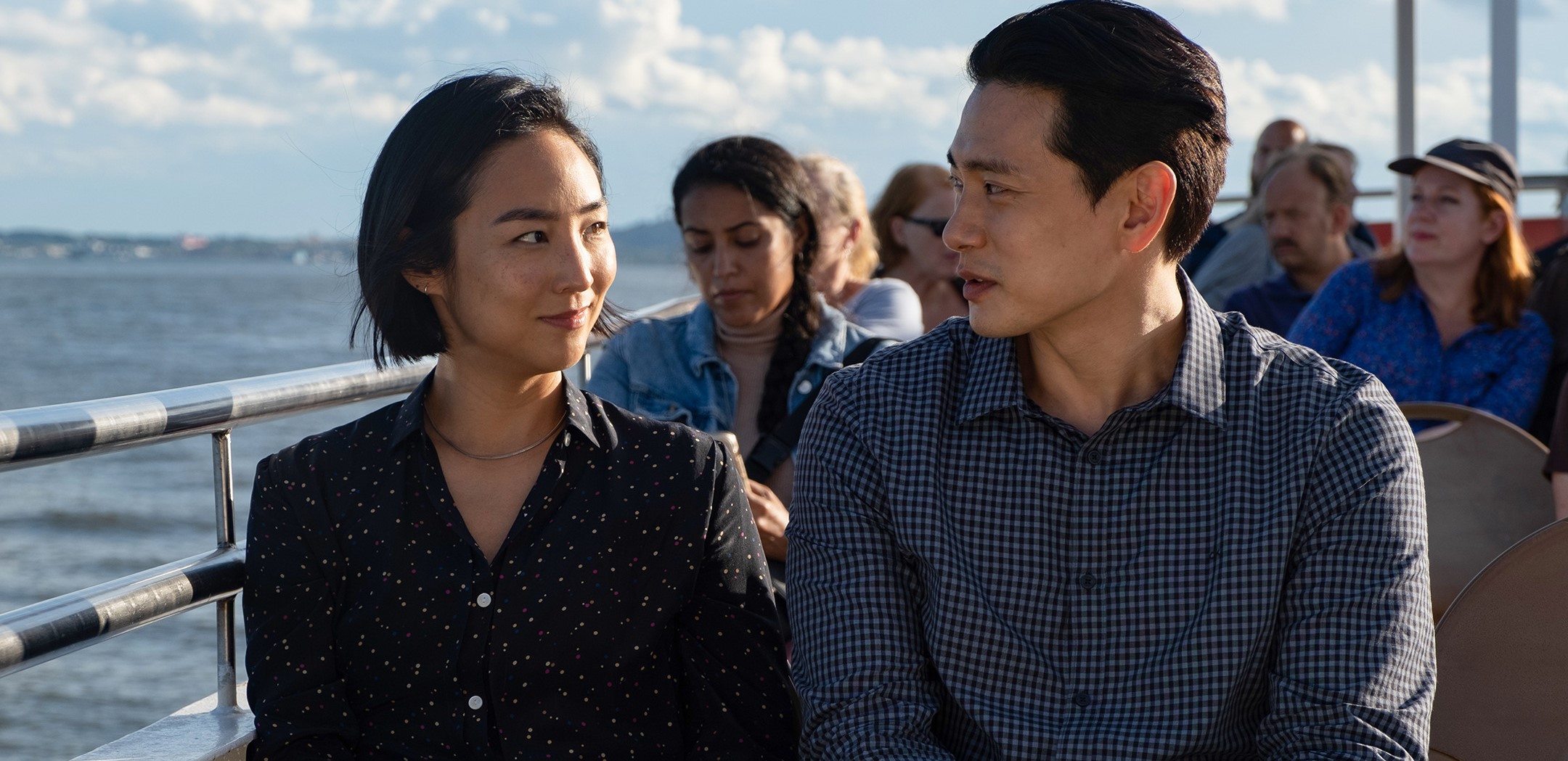
Na Young and Hae Sung grow up together in Seoul. They are close friends and like each other quite a lot. When Na Young’s family is set to depart South Korea for Canada, her mother decides to let her daughter have some good memories she can take with her. She sets up a date with Hae Sung, where the 12-year-olds spend the day together. Sometime later, Na Young leaves and adopts a new name, Nora, in Canada.
Twelve years later, Nora has moved to New York, where she is working as a playwright. One day, she starts looking into her friends from Seoul, just for fun. She remembers Hae Sung and is surprised to discover he tried to find her. She texts him, wondering if he still remembers her. Hae Sung is surprised, too. He realizes he couldn’t find Nora the last time because he didn’t know she had changed her name.
For the next few months, Nora and Hae Sung talk with each other regularly over Skype. They schedule their meetings according to their time zones and even plan to meet in person. Either Nora will have to go to Seoul, or Hae Sung will have to come to New York. Neither of their schedules allows their meeting to happen any sooner than a year. Realizing that things will not work out with Hae Sung because of the time difference, Nora decides not to let it affect her life and work in New York. They break up. Twelve years later, Hae Sung comes to New York to meet Nora, who is now married to Arthur.
Past Lives Ending: Do Nora and Hae Sung End Up Together?
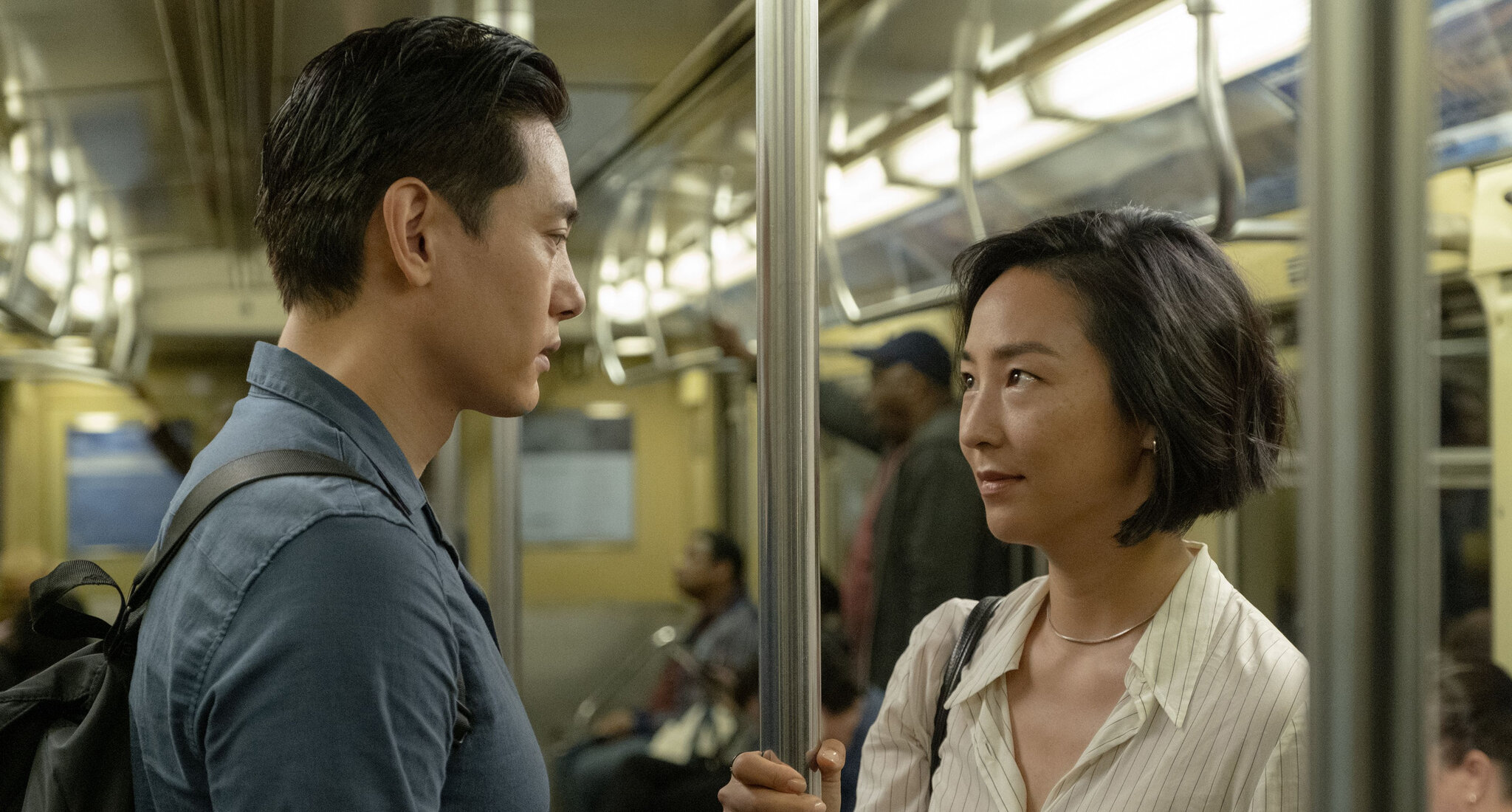
When a story begins with two childhood sweethearts separating, it usually heads towards them being reunited and receiving a happy ending. A stroke of luck or two, overcoming all obstacles, and leaving behind any new romantic interest that might have popped up in their lives push the story’s plot. It makes sense for those who have been connected since childhood to end up together, rather than some random person they met along the way. These are Arthur’s thoughts regarding the story of his wife and Hae Sung.
While Nora and Hae Sung looked perfect for each other, timing and distance kept them apart. When they found each other on Facebook, they were too far apart to continue being in a long-distance relationship. Even the prospects of a face-to-face meeting were so low that Nora had to shut down the whole thing between them. By the time Hae Sung comes to New York, Nora is already married to Arthur.
In any other cliched Hollywood rom-com, Nora would have left her husband, Arthur, who would have either been the villain or someone she realized she didn’t love enough. Seeing Hae Sung would have sparked the love she had for him all these years, and being with him would have become a reality. Running off with him to Seoul would have been the ending the entire film would have built up to. However, things are not as easy for Nora, just like they are not so simple in real life.
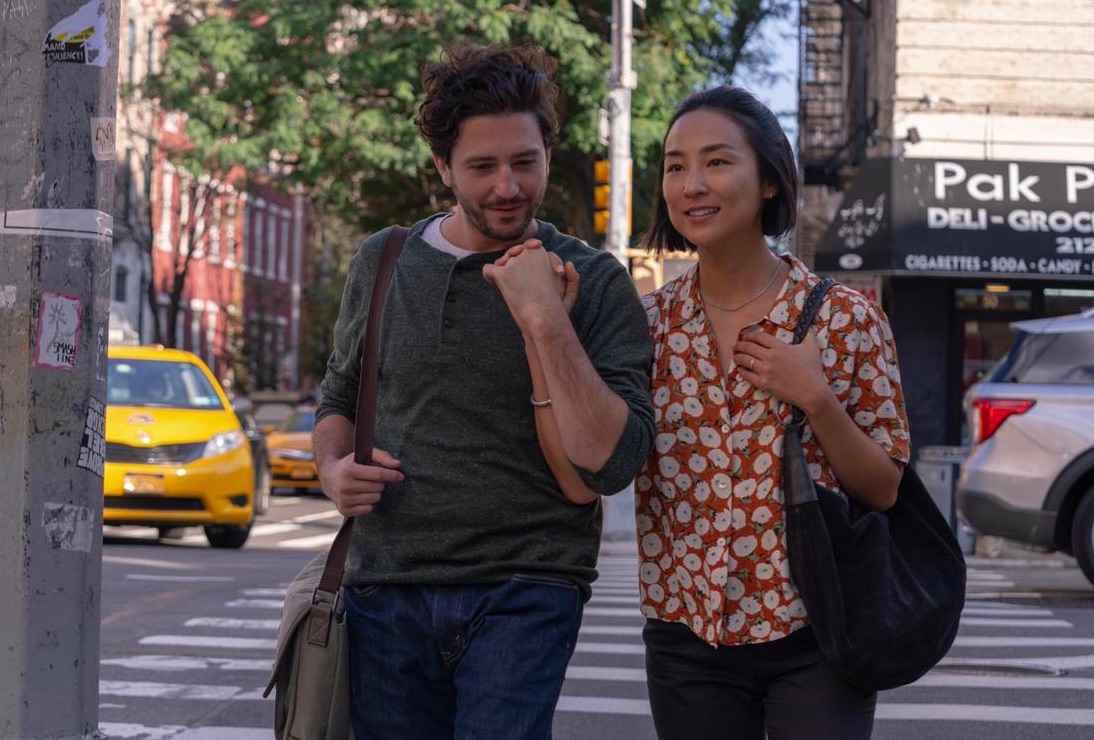
Did Nora love Hae Sung? Yes. But she loved Arthur too. She chose to let go of Hae Sung to sever contact between them. Similarly, she chose to be with Arthur. She chose New York and her life in America over going to Seoul and being with Hae Sung. She made these conscious decisions for her life, which meant something to her. Whatever life she could have had with Hae Sung doesn’t matter because that’s not what she chose. Choices, in this sense, are what matter, and Nora sticks by them, no matter how much it pains her to say goodbye to Hae Sung every time.
Considering how their connection has persevered over more than two decades, even Arthur wonders if Nora wants to leave him and run away with Hae Sung because she was supposed to be with him all along. She tells him she is not going to leave her life for just “some dude.” Come to think of it, the time Nora spent with Hae Sung is minuscule in comparison to the years she has been with Arthur. When Hae Sung comes to New York, Arthur and Nora have been married for seven years. While it would be a romantic idea to run away with Hae Sung, it is unrealistic. Nora does not abandon the life she has built with Arthur and bids farewell to Hae Sung.
Why Does Nora Cry?
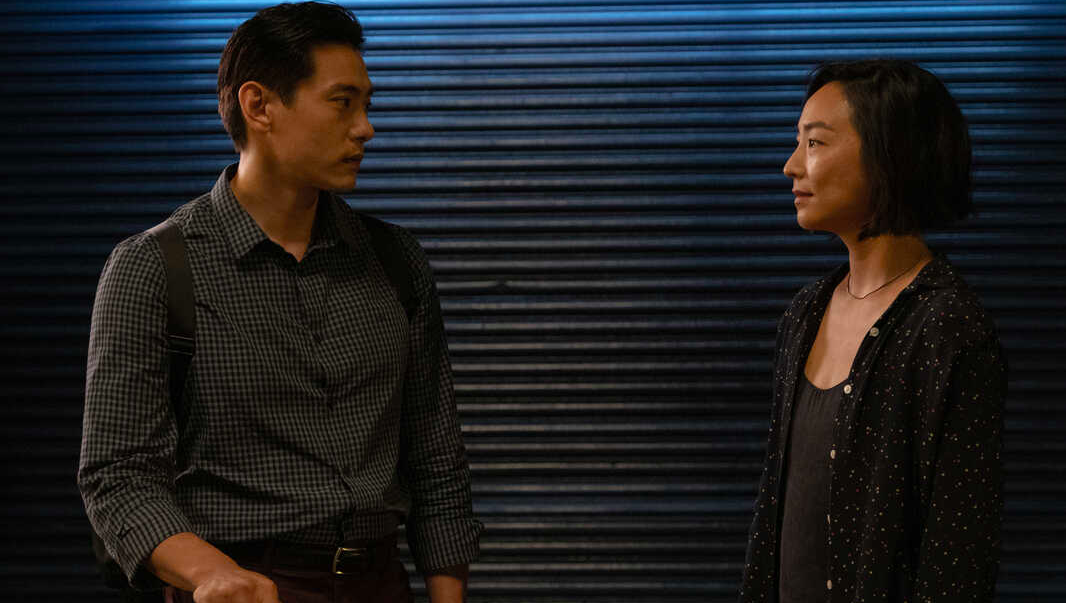
After spending the day with Hae Sung, Nora takes him to meet Arthur. They get dinner together, where Hae Sung talks about his feelings, including that he likes Arthur, even though he thought he wouldn’t. When the day ends, they go back home. Arthur stays at the house while Nora walks Hae Sung to his cab. They barely say anything to each other on the way, share a moment where they look at each other without breaking the silence. Then the cab arrives, and as Hae Sung is about to leave, he asks Nora whether this is one of their past lives. If so, then what does she think they are to each other in their next lives?
Nora says she doesn’t know. Hae Sung gets in the cab and leaves. Nora walks back to her apartment, where she finds Arthur waiting outside. As he approaches her, she starts to cry. Since Nora has chosen Arthur over Hae Sung, why does she cry when the latter is gone? Does that mean she regrets letting him go? Is she in love with him? Should she have left Arthur and New York and gone with Hae Sung to Seoul?
One of the important themes of ‘Past Lives’ is choices. As much as Nora and Hae Sung talk about in-yeon and their connection in this life and their previous ones, things, more or less, boil down to choices. In that vein, Hae Sung and a life with him is something Nora didn’t choose. It is the path that diverted into the woods, which Nora dropped over the other path that eventually led her to Arthur. Nora’s tears at the end are not about choosing this life in New York or choosing Arthur over Hae Sung. It’s about the other path she didn’t take. It is not regret that makes her cry, but the sadness of never getting to know what that life could have been like.
To Nora, Hae Sung represented the life she left back in Seoul. She left for Canada when she was twelve. Leaving her homeland, coming to a new country, and adapting to its ways led Nora to change. Over time, she lost touch with the 12-year-old girl she used to be when she was in South Korea. To her, Hae Sung is the representation of that innocence. In some ways, he is her final connection to that girl who lived in Korea and had big dreams and didn’t feel out of touch with her identity as a Korean when she met someone else from Korea. Being reunited with Hae Sung allowed her to feel that connection with Seoul again in ways no one else could make her feel.

Letting go of Hae Sung meant letting go of that 12-year-old version of herself. It feels like severing a connection with Seoul, which she held on to all these years, especially after reconnecting with Hae Sung. Her heart breaks not just because she knows this might be the last time she meets Hae Sung but also because she feels strange homesickness for the life that doesn’t belong to her. This emotion had always been inside her but might also have been brought out by Hae Sung’s what ifs and what then.
Another interesting thing about this scene is that this is the first time we see Nora cry in the movie. In one scene, when she and Hae Sung are talking over Skype, reminiscing about the old days, he mentions how she was a crybaby and used to cry all the time. She reveals that she doesn’t cry anymore. She stopped crying when she came to Canada because she realized no one cared anymore. She perhaps also saw crying as a sign of weakness, which isn’t what she wanted to be any more in this foreign country where she thought about making her dreams come true.
Later, Arthur is a little surprised about discovering that Nora used to be a crybaby when she was a child. He couldn’t have imagined it because she probably never cried in front of him. In the final scene, when she breaks down in front of him, it’s a step she unintentionally takes towards being her past self. This is a breakthrough in her relationship with Arthur because she can cry in front of him now and know that she is cared for. By letting go of the one thing she thought was her connection to the life she left behind in Seoul, Nora finds her way back to it.
What Happens to Hae Sung?
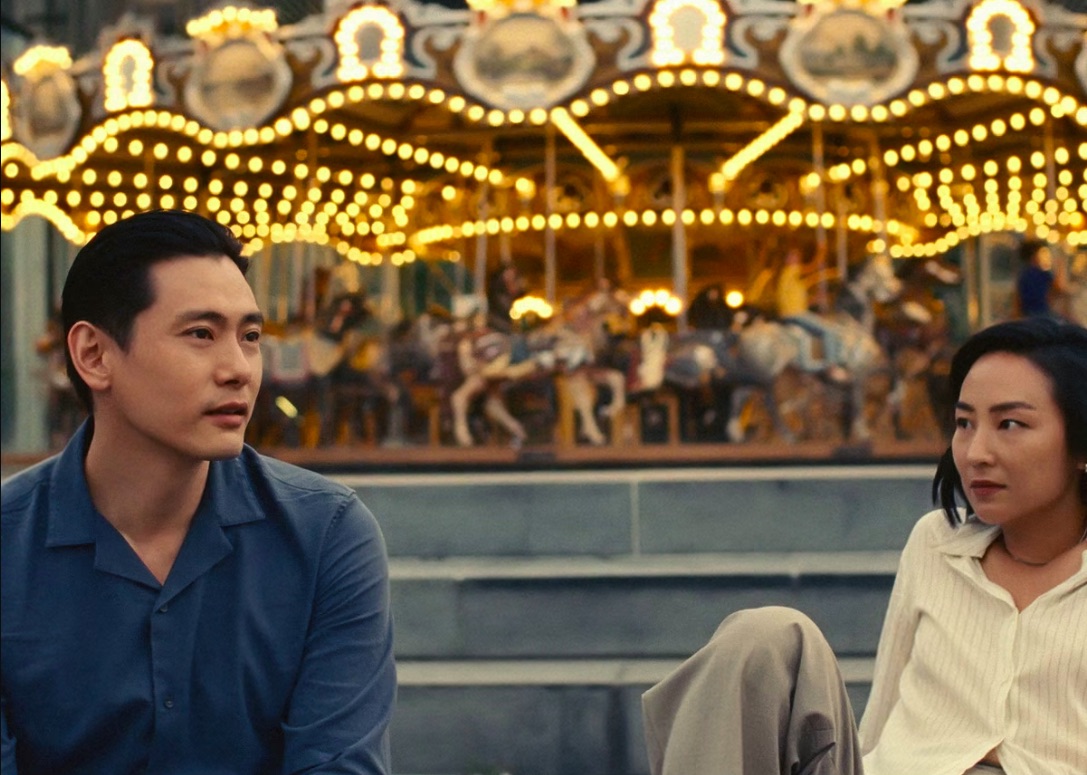
Hae Sung’s unrequited love for Nora forms the focus of the story, as it keeps circling back to how he still feels about her after all these years. Hae Sung’s love for her stems from their childhood, when things were simpler, and they could be happy without thinking too much about what they wanted from life or if there were certain conditions they had to fulfill to marry someone.
Hae Sung’s first brush with the unfairness of life comes when Nora leaves Seoul. He is sad about losing his friend, who he also has a crush on. He resents Nora for being happy about leaving him behind and imagining a new, better life for herself in Canada. Still, neither of them grasps the true extent of their parting because they are children. This is why their goodbye lacks the closure that Hae Sung looks for for the next two decades.
When they grow up, Hae Sung looks for Nora, and unlike her, it is not by some chance or joke. He was actively seeking her. When they meet again, it’s been twelve years, and still, Hae Sung confesses he missed her. For him, she was, in some ways, a representation of the life he could have had, even though he was the one who was left behind. It was some romantic notion he entertained, something innocent and pure, like his childhood with her.
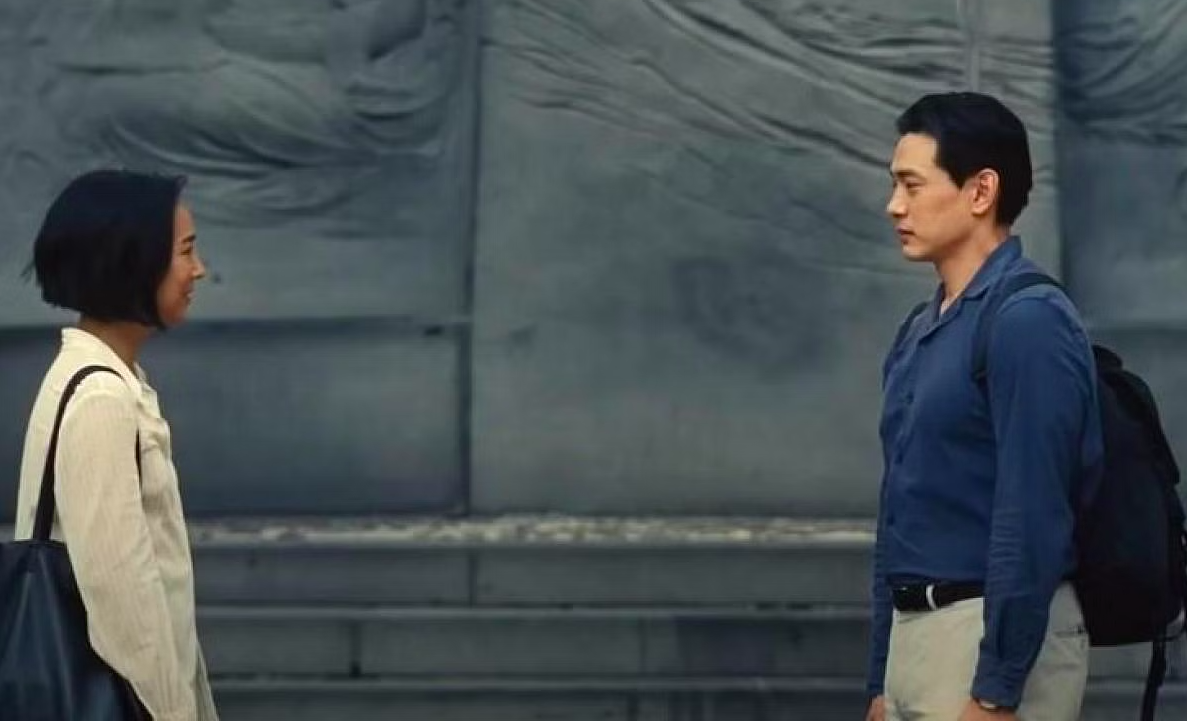
When Nora suggests they break up, Hae Sung is saddened, but he understands why it’s best for them. Even then, he doesn’t completely let go of her. Years later, he decides to go to New York to visit Nora. The timing coincides with him and his girlfriend taking a break to think things over and decide whether they want to get married. When Nora asks him why they don’t just get married if they are in love, Hae Sung doesn’t talk about the love part of their relationship but focuses on the conditions that aren’t met. By the end of his visit, it becomes clear that his visit was more than just finally meeting Nora. It wasn’t even about winning her back and stealing her from Arthur. It was about closure before he moved on with his life.
It is unclear who suggested they should take a break from their relationship, but considering his feelings for Nora, it might have been Hae Sung who brought that up. Perhaps he wanted to close the Nora Chapter before marrying his girlfriend and starting a new life with her. He knew he couldn’t do that by talking with her on Skype. He needed to see her in person to gauge her feelings and his own and end things on a better note than they did the last time. He needed the closure they never got as children.
In the end, Hae Sung sees that Nora has moved on and is happy with Arthur. He also knows that she belongs with her husband in New York, and any idea of her and Hae Sung ending up together is nothing more than a fantasy, just like their ideas of what they might have been in their past lives to have their present lives entangled this way. Even as Hae Sung accepts the reality and bids farewell to Nora, he wonders if there is any chance for them in another life. Perhaps this is a past life, a layer of in-yeong that would add up and lead them to cross paths in the next life. What would they be to each other in that life?

Nora could have given him a hopeful answer. She could have said that perhaps, in another life, they would be together. Perhaps, in their next lives, the timing would be on their side, and they would be with each other. Or, she could have shut him down and told him they could be the strangers who brush past each other. But she does neither. She says she doesn’t know what they will be each other in the next life because whatever it will be would be fate and out of their control, just like it is in this life. There is no point pondering over something you have no choice over, no matter how much you want it to happen a certain way. Whatever happens then will have to be accepted just like they must accept everything that has happened in this life.
In the last scene, we see Hae Sung in the cab, but his expressions are much more relaxed than Nora’s, who broke into tears. He seems relieved, maybe because he has finally let go of Nora. He has found what he was looking for when he came to New York. This is the closure, the goodbye that their 12-year-old selves deserved, which is why the scene goes back to a young Hae Sung and Nora in Seoul at night, standing on paths that diverge. Whether Hae Sung gets back together with his girlfriend and marries her, we don’t know. But it’s clear that wherever his life goes from here, it will be without his pining for Nora. He has cut that cord and is freer for it.
Read More: Past Lives: In-Yeon Meaning, Explained

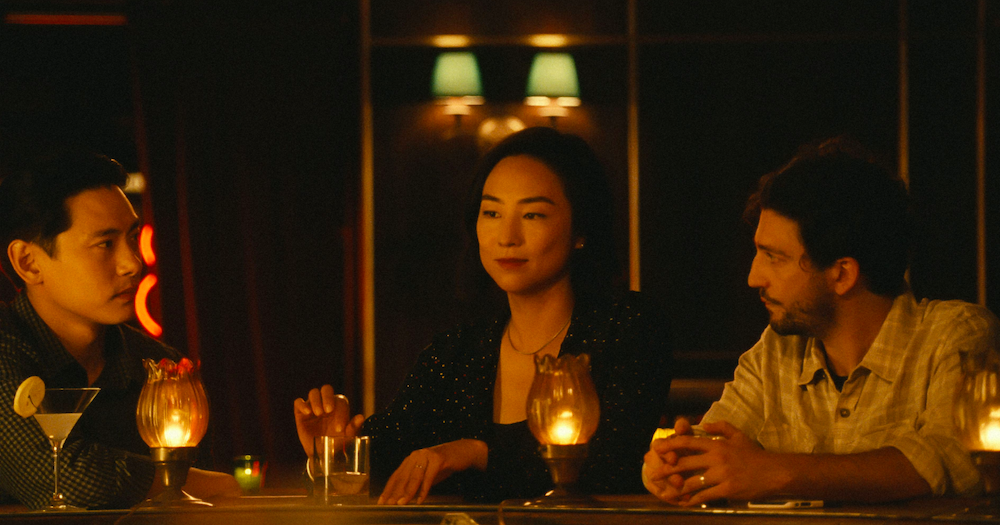
You must be logged in to post a comment.